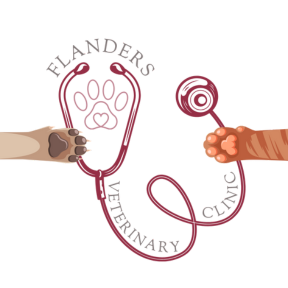Understanding Fecal Examinations: Essential for Your Pet’s Well-being
If you’re a pet owner, you’re likely acquainted with the routine of taking your furry companion to the veterinarian for their yearly check-up. Amidst the array of health assessments they undergo, one crucial examination stands out: the fecal exam. But what precisely does this entail, and why is it paramount for your pet’s health?
What Are Fecal Examinations?
A fecal examination involves a microscopic analysis of your pet’s stool. Its primary objective is to detect and diagnose parasites in your pet’s gastrointestinal tract. These parasites encompass worms (like roundworms, hookworms, and tapeworms) and protozoa (such as Giardia or Coccidia).
During the examination, a small portion of your pet’s feces is mixed with a solution, causing parasite eggs to surface. A skilled technician or veterinarian prepares a slide from this solution for microscopic scrutiny.
Why Are Fecal Examinations Essential?
Fecal examinations play a pivotal role in preventive veterinary care for several reasons:
Early Parasite Detection: Many intestinal parasites may lurk without exhibiting visible signs or symptoms. Fecal exams can uncover these concealed threats before they escalate into severe health issues.
Prevention of Zoonotic Diseases: Certain parasites, termed zoonotic diseases, can transfer from pets to humans. Regular fecal examinations safeguard not only your pet’s well-being but also your family’s health.
Adequate Treatment Assurance: Your veterinarian can prescribe appropriate deworming medication if parasites are detected. Subsequent fecal examinations confirm the efficacy of the treatment.
Overall Health Maintenance: Intestinal parasites can precipitate malnutrition, dehydration, and other complications. Identifying and addressing these parasites contributes to preserving your pet’s overall health and vitality.
How Frequently Should Fecal Examinations Occur?
The frequency of fecal examinations hinges on several factors, including your pet’s age, lifestyle, and general health. Puppies and kittens may necessitate more frequent testing due to their heightened susceptibility to parasites. Most veterinarians advocate for at least annual fecal examinations for adult pets.
A fecal examination is a straightforward yet indispensable aspect of preventive veterinary care. It’s a non-invasive procedure that yields invaluable insights into your pet’s health while shielding them from potentially harmful parasites. If it’s been some time since your pet’s last fecal examination or if you’re uncertain about their parasite prevention regimen, reach out to your veterinarian today to schedule an examination. By doing so, you’re proactively safeguarding your cherished companion’s health and happiness for years. Remember, when it comes to parasites, the unseen can inflict harm. Let’s collaborate to keep your pet free from parasites!

